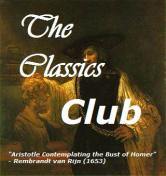On Tuesday after I finished work, I jumped on the tube to Archway to see Tracy Chevalier in conversation with Booker Prize nominee Charlotte Mendelson. I've previously seen Tracey Chevalier at World Book Night earlier this year and she was wonderful then, even just doing a reading. This time, I feel like I got the full Tracy Chevalier experience. The evening started with a reading from Charlotte's new novel, Almost English. I already had this one on my radar because I remember being impressed by one of her previous novels and this one seems just as good. Well, I suppose it must be if it's on the Booker Prize Longlist. Tracy was reading from her latest, The Last Runaway. I loved the extracts from both novels (totally bought one of them. Cheeky). What I really enjoyed, though, about the entire evening was the conversation between the two writers. It was really interesting hearing their thoughts on their own work, each others work and on writing in general.
After the discussion had finished their was the chance to get books signed by the authors. Unfortunately, I repeated the 'Sooke Incident' of earlier this year. There I was clutching my (new) book, smiling like a loon, waiting patiently for my turn with Tracy. The whole time I was trying to think of what to say that would sound intelligent but not too pretentious, and show how much I enjoyed her books without literally saying 'I LOVE YOU TRACY'. Did I succeed? Nah, this is me. There I was red-faced, spluttering and shaking slightly and what comes out of my mouth? 'I love it when you talk about Lyme, I grew up near there'. Awkward. Fail. Loser. Etc etc. Perhaps I just shouldn't meet people I admire. Still, she signed my book and now I will treasure it forever.
This afternoon I popped on over to the Soho Theatre to see the wonderfully named 'WAGs of the Third Reich'. Can't get much cooler than that. This was a discussion panel made up of Meike Ziervogal (who has just published Magda - totally bought that), Anne Sebba, Jane Thynne and Rachel Johnson (not going to lie, I was totally unimpressed by Rachel). The panel was chaired by Anne Sebba and focused on a discussion of the women of the Third Reich though it did keep coming back to Magda Goebbels (woman had issues). I was completely blown away by some of the facts that were shared but also by each author's reasoning behind writing a work of fiction about such an intense and controversial subject. Meike's German heritage made her a particularly interesting participant in the discussion and I definitely found what she had to say the most interesting.
To be completely honest, whilst the subject of this panel was immensely interesting, I was frequently distracted by the group dynamics on stage. At times there was a overwhelming sense of competition between a couple of the speakers which surprised me no end. Anyway, that just added an interesting extra layer to the event.
Did I say I love London already? To be able to attend these two literary events in one week has been a wonderful experience (and means my hours of scouring Time Out London can pay off). However, there is a slight downside to literary London...I buy ALL THE BOOKS. This week I have bought myself 7 books. And I'm meant to be cutting down! Oh heck.
.JPG)
Down the Rabbit Hold by Juan Pablo Villalobos
The Knife of Never Letting Go by Patrick Ness
A Vindication of the Rights of Women by Mary Wollstonecraft
An Answer to the Questions 'What is Enlightenment?' by Emmanuel Kant
Magda by Mieke Ziervogal
War Reporter by Dan O'Brien (poetry)
The Last Runaway by Tracy Chevalier
I also somehow managed to get two Books Are My Bag bags...well, books definitely are my bag.

.JPG)

.jpg)

